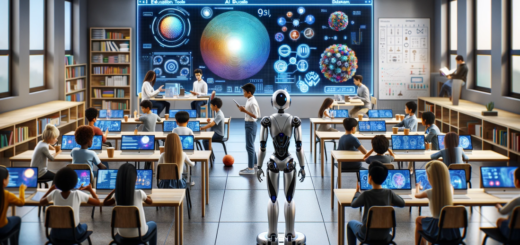Top 10 Soft Skills Students Need in 2025
As we move deeper into the 21st century, the landscape of education and employment continues to shift dramatically. Technology, automation, and globalization are reshaping the job market, while the rise of remote work and digital collaboration demands a new set of competencies. While technical skills remain important, it’s the soft skills—those interpersonal, emotional, and cognitive abilities—that are becoming increasingly crucial for success in both academic and professional environments.
In 2025 and beyond, students who cultivate these soft skills will be better prepared to thrive in a fast-paced, ever-changing world. This article explores the top 10 soft skills that students should develop to stay ahead.
1. Emotional Intelligence (EQ)
Emotional intelligence is the ability to recognize, understand, and manage one’s own emotions, as well as the emotions of others. It includes self-awareness, empathy, emotional regulation, and interpersonal communication.
In 2025, emotional intelligence will be more important than ever, especially in collaborative environments. Students who possess high EQ can build stronger relationships, navigate social complexities, and lead with empathy—essential qualities in any career.
Why it matters:
- Improves teamwork and conflict resolution
- Enhances leadership abilities
- Supports mental well-being and stress management
2. Adaptability and Flexibility
Change is constant, and the ability to adapt quickly to new situations, technologies, and work environments is vital. Whether it’s adjusting to new learning platforms, transitioning between hybrid and in-person learning, or taking on new responsibilities in a job, adaptability is key.
Students who can stay flexible and open-minded will be better prepared for unexpected changes in the workforce, including shifts in job roles, industries, or technologies.
Why it matters:
- Helps in coping with change and uncertainty
- Encourages creative problem-solving
- Increases resilience in dynamic environments
3. Communication Skills
Effective communication—both verbal and written—is a foundational skill that remains critically important. In 2025, communication will not only include in-person interaction but also video conferencing, email, digital messaging, and social media platforms.
Students need to be able to articulate their ideas clearly, listen actively, and adjust their tone and language for different audiences and formats.
Why it matters:
- Facilitates collaboration and leadership
- Reduces misunderstandings
- Enhances academic and professional performance
4. Critical Thinking
Critical thinking is the ability to analyze information objectively, evaluate arguments, and make reasoned decisions. In an age of misinformation and data overload, this skill is more essential than ever.
Students who can think critically are better equipped to solve problems, make informed decisions, and evaluate the credibility of sources—both online and offline.
Why it matters:
- Enhances problem-solving abilities
- Promotes independent thinking
- Encourages informed decision-making
5. Collaboration and Teamwork
The ability to work effectively in a team is essential, especially in modern workplaces that emphasize cross-functional and multicultural collaboration. With remote and hybrid work models becoming the norm, students must be able to contribute to teams across geographies and time zones.
Collaboration is not just about getting along; it’s about co-creating, sharing responsibilities, and leveraging collective strengths to achieve common goals.
Why it matters:
- Builds interpersonal and conflict resolution skills
- Encourages diversity of thought
- Prepares students for group-based work environments
6. Creativity and Innovation
Creativity isn’t limited to the arts—it’s about thinking differently, solving problems in original ways, and innovating processes or products. As artificial intelligence and automation handle more routine tasks, human creativity is becoming one of the most valuable and irreplaceable assets.
In 2025, students who can approach challenges with a creative mindset will be at an advantage in industries ranging from technology to healthcare to business.
Why it matters:
- Fuels innovation and entrepreneurship
- Encourages risk-taking and experimentation
- Differentiates individuals in competitive markets
7. Time Management and Self-Discipline
The shift toward digital learning and independent study has made time management a critical skill. Students must learn to prioritize tasks, meet deadlines, and stay productive without constant supervision.
Self-discipline also involves maintaining focus, avoiding distractions, and developing consistent habits—all of which are necessary for academic success and future work environments.
Why it matters:
- Boosts academic performance
- Prepares students for self-directed work environments
- Enhances reliability and professionalism
8. Digital Literacy
While technical skills like coding are important, digital literacy is a broader soft skill that involves understanding how to use digital tools, evaluate online information, and engage safely and ethically in digital spaces.
In 2025, students must be able to navigate multiple digital platforms, use collaboration tools, and understand basic data privacy and cybersecurity principles.
Why it matters:
- Supports hybrid learning and remote work
- Promotes safe and effective use of technology
- Helps students stay informed in a digital world
9. Leadership and Initiative
Leadership is not reserved for managers or CEOs—it’s a mindset that can be applied at any level. It includes taking initiative, motivating others, setting goals, and driving change. Students who step up as leaders in group projects, student organizations, or community activities develop skills that will serve them well throughout their lives.
Leadership is also about being proactive. Rather than waiting for direction, students with initiative take ownership of their learning and growth.
Why it matters:
- Prepares students for future leadership roles
- Encourages accountability and responsibility
- Builds confidence and self-motivation
10. Cultural Competency and Global Awareness
As the world becomes more connected, students must develop the ability to understand, respect, and work with people from different backgrounds. Cultural competency involves recognizing diversity, avoiding stereotypes, and appreciating different perspectives.
In a global job market, employers value individuals who can work across cultures and contribute to inclusive environments.
Why it matters:
- Enhances collaboration in diverse teams
- Supports ethical decision-making
- Encourages empathy and global citizenship
Final Thoughts
The world of 2025 will demand much more than technical know-how. It will require a human-centric approach—where emotional intelligence, adaptability, and the ability to think creatively matter just as much as academic credentials.
For students, investing in these soft skills now will lead to long-term rewards. Whether you’re applying for university, internships, or your first job, these abilities will set you apart and help you succeed in any field.
The most successful individuals of the future will not only be those who know the most, but those who can adapt, communicate, empathize, and lead in an ever-changing world.


